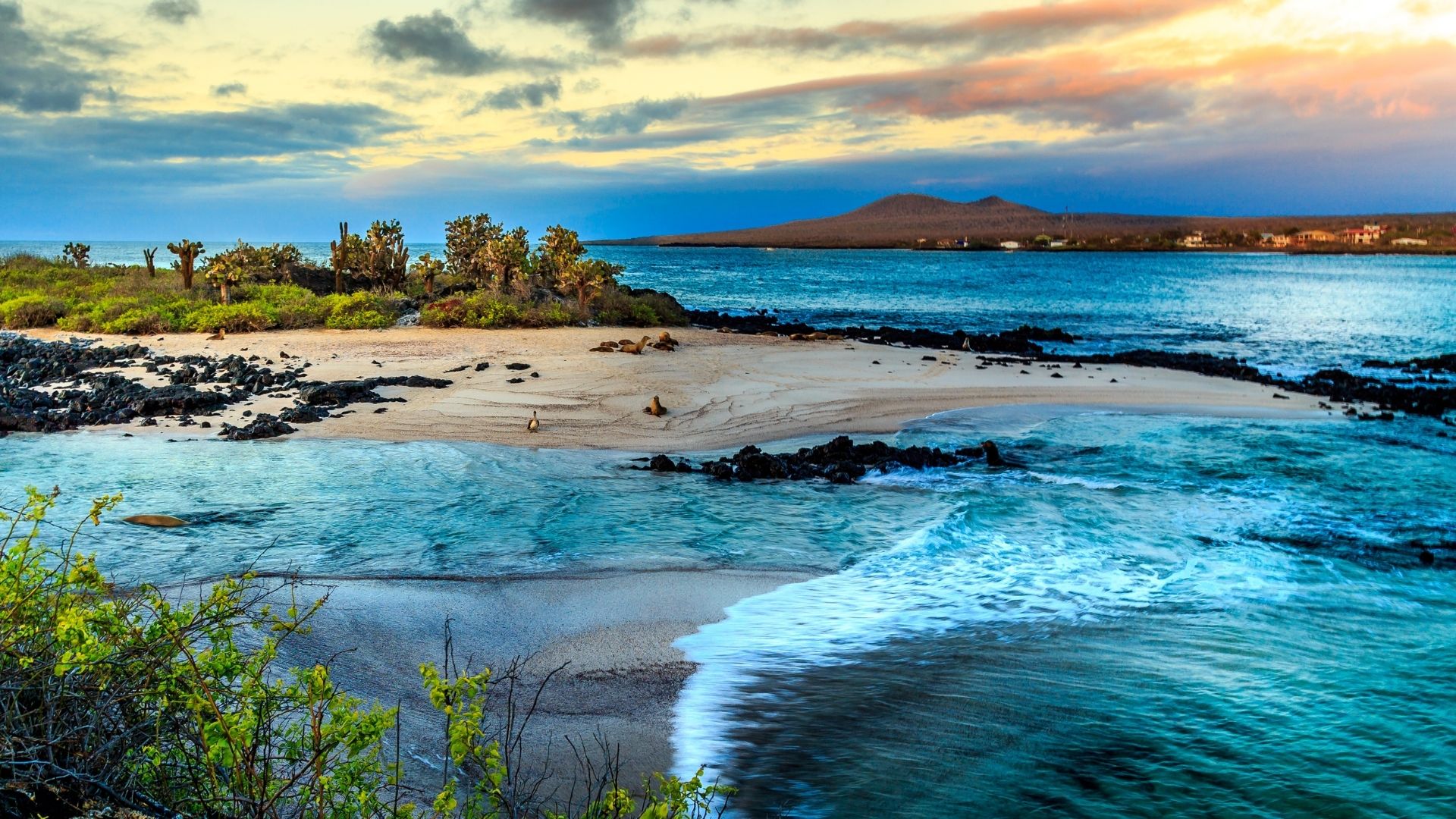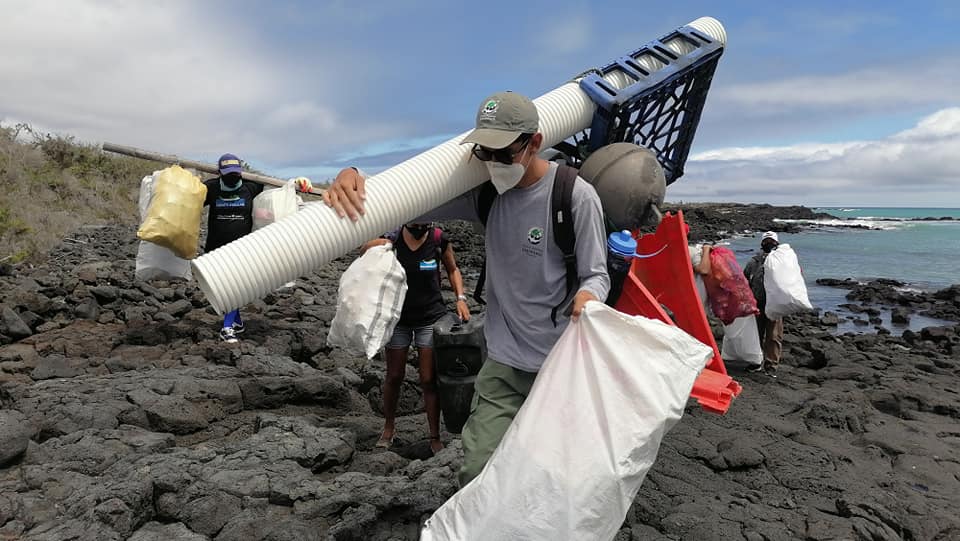Even Our Most Iconic Locations Are Not Immune to Plastic Pollution
The Galapagos Islands.
Words cast forever in folklore, history, and our global collective environmental wonder.
Words which – away from the visions they inspire – physically denote a small and remote archipelago flung 800 miles off the coast of Ecuador, out in the Pacific.
A series of islands which are among the most singular, amazing and unique places on earth.
Fundamentally, the territory is known for its huge array of endemic species. A walk around any one of the islands would see you witness a veritable kaleidoscope of flora and fauna, famously the chief muses for Charles Darwin as he wrote his seminal Theory of Evolution.
Awarded status as a UNESCO World Heritage Site in 1978, and established as a biosphere in 1985, the islands have levels of endemism seen in few other places. This is because they are home to a number of unique ecosystems, and are geographically isolated from anywhere else. Historically, a creature could only have flown or swum to the island, and those that settled there developed unique traits.
Of course, the arrival of modern man on the islands in the 1830s rapidly altered the ecosystems, and, in the last century, the advent of a new kind of invader has put at risk the survival of the species who call the Galapagos home. The culprit? Plastic.
Alongside a global rise in single-use plastic consumption, after the 1950s tourists began flocking to the islands at such unprecedented levels that the community did not have the time or the resources to prepare for them – and were therefore ill-equipped to deal with the waste these visitors left behind.
Building on the unique heritage of the islands, however, two local nonprofits are now uniting against the plastic threat, and have joined Plastic Oceans International’s BlueCommunities initiative to work alongside groups across the globe. Welcome to the amazing Fundación Naveducando and Frente Insular de la Reserva Marina de Galápagos.
As tourism on the archipelago has escalated, individuals around the islands began to witness the degrading impact of plastic waste on the local ecosystems. Eventually, some of them, like Roby Pepolas, from Fundación Naveducando, began to undertake actions aimed at finding a practical solution. Pepolas speaks of the absolute necessity of protecting the local wildlife, and indeed, the global marine ecosystem, from the negative impacts of plastic waste in the oceans.
“The idea of generating this project came from my direct and personal observation of the damage we cause to the planet, and in this case in particular, the damage we cause to a place as unique and particular as the Galapagos Islands,” he says. “By analysing what I saw, and looking for the best way to contribute to a positive change in this regard, I came to the conclusion that education is the best way to achieve meaningful long-term change.”
Their keystone project for the education of the island’s youth is Galapagos Infinito, which offers all children aged 12 the opportunity to take a five-day cruise around the islands.
Plastic Oceans’ Regional Director for Latin America, Mark Minneboo, praises the value of educational programs in locations such as the Galapagos: “It surprised me when our local partners spoke about environmental education for young people when one assumes that living in such an amazing place will educate the kids automatically, living so closely to nature. The work of our partners shows us the importance of educational programs even in such biodiverse places like the Galapagos Islands! I´m so happy that through BlueCommunities we can share their work across the globe.”
Similarly, Alberto Andrade, co-ordinator at Frente Insular, stresses the importance of education and empowerment as a way to create a common agenda fighting against single use plastics. “Our focus is on the development and implementation of awareness activities on the environmental damage of single-use plastics, and on teaching the importance of the interconnectedness of the sea and nature,” he says.
Frente Insular was born from the need to improve the conditions of vulnerable families through the creation of communal zero-waste gardens, which provide nourishment for the community, and in which plastics and disposable products are reused. Since its inception, Frente Insular has carried out hundreds of coastal cleanups, and recognizes that as well as removing waste from the coastline, the cleanups are also a great point at which to generate conversations about plastic use and waste.
Ultimately, both organisations are aiming to change the way that the citizens of the Galapagos see this most ubiquitous and most harmful material, achieving this by working with the community to facilitate global change through local impact. People love what they know, and protect what they love, so by teaching young people to be thoughtful stewards of their home, the initiatives on the Galapagos are designed to create passionate advocates for the welfare of the islands.
“It is essential to join forces, and fight together for common objectives,” says Roby Pepolas. “There is strength in unity.”
This unity is critical for the preservation of iconic spaces, which are important not merely intrinsically, for their own sakes, but also for the vast and interconnected possibilities that they offer to all other spaces.
Because, when it comes to the Galapagos, we are all paying attention.
Shannon Collins writes Environmental Features and is part of the editorial team at Ninth Wave. She is also a regular columnist for Mexico News Daily.




Trackback: celeb deepfakes
Trackback: ai generated celebrity porn
Trackback: Destination Wedding in France
Trackback: เว็บ แทงมวย การเดิมพันเว็บแทงมวยตรงไม่ผ่านเอเย่นต์
Trackback: ที่มาของเว็บ UFADEAL
Trackback: ปั่นสล็อต เว็บไหนได้เงินไว แจกโบนัส 100%
Trackback: รับนำเข้าสินค้าจากจีน